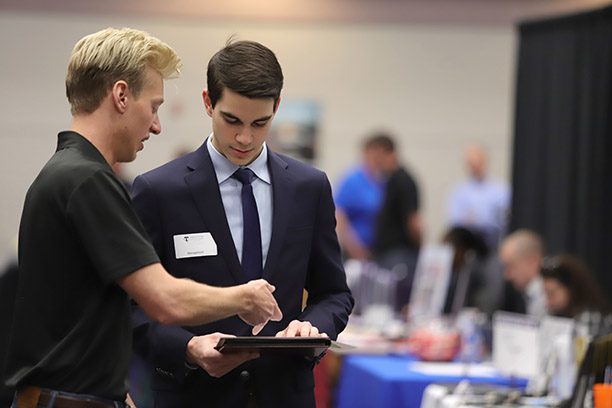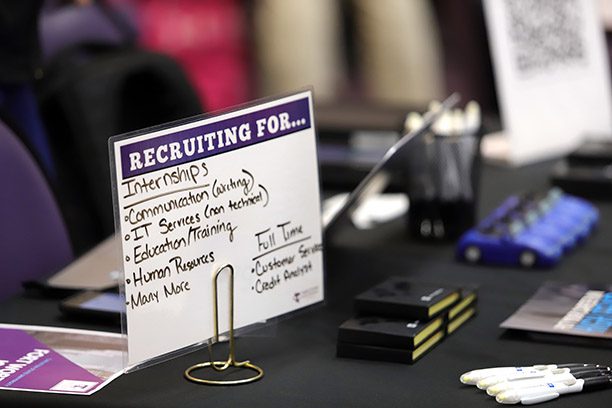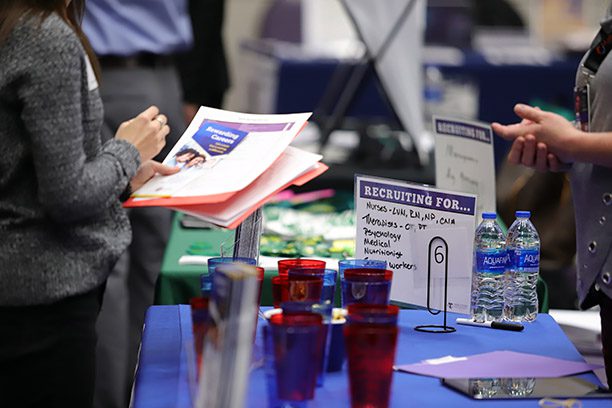How to start planning for your career:

Career Cycle Phases
A personalized career plan provides students with an individualized career planning experience that is adaptable to their specific needs. This tailored planning allows for structured guidance and action items that are applicable to all students, regardless of classification, in an effort to remain inherently flexible.

Self-Exploration
Self Evaluation and Career Planning
You can contact Career Services for many of your career planning needs. We have peer Career Coaches, trained by highly qualified professional staff, to assist you with tools and resources for planning a healthy career path while on and off campus during your time as a student.
We can assist you with resources to help with anything from deciding your major, researching careers within your major, finding a part-time job while you are in school, to preparing for your first (or next) career position outside of Tarleton State University.
What To Do:
Learn/Explore
- Undecided about your major? Take advantage of Focus2Career!
- Use EAB to sign up for a Career Coaching Appointment
- If you like your major, maybe it’s time to learn about your major’s requirements and prerequisites to achieve your career goal.
- Check out the Career Services website and our helpful resources.
- Browse through Tarleton’s advising guides to learn more about the courses and requirements for each degree plan.
- Use the TSU Catalog-Course Index to read a course description before ever taking the class!
- Meet with your advisor and finalize your major selection based on your interests and values.

Career Investigation
Learning & Gaining Career Experiences
Once you have explored a variety of majors and narrowed your focus, you can begin exploring matching career options and the details associated. This can be done by looking at different industries, considering salaries, work environment, hard & soft skills required, additional certifications or licensures needed, and discovering the future outlook for that particular job and others similar to it.
Now is the time to begin building and adding to your skills tool belt through part-time work, involvement in campus organizations, volunteer work, and skill-building activities.
What To Do:
Career Resources
- Narrow down your career options to find what matches your interests and values.
- Undecided about your major? Take advantage of Focus2Career!
Build Transferable Skills
- Begin to build or continue building your resume.
- Consider career-related activities (i.e. summer jobs, part-time jobs, job fairs, volunteer work, internships), start with Handshake, and also consider getting involved in professional or major-related student organizations on campus.
- Consider adding a minor to your degree or participating in study abroad to gain more experience and become well-rounded to employers.
- Build your career development skills by attending workshops, career job search, and talking to a Career Coach at Career Services.
Reality Testing
- Set realistic job expectations, including pay!
- Continue to develop computer and job-related skills, and knowledge of the workplace.
- Don’t wait until your last semester to begin job searching, attend job fairs.
- Ask individuals Informational Interviewing questions to help you learn more about your career interests.
- Explore Disney or other internship opportunities.

Develop & Communicate Your Brand
Put Yourself Out There
What To Do:
It’s never too early to begin creating your professional brand.
Your brand includes things like resumes, interviewing skills, e-portfolios, cover letters, social media etiquette, elevator pitches, professional development, and much, much more!
Start now by learning how to communicate your brand to employers and others around you to build your network!
- Plan your job-search campaign.
- Put your resume online through Handshake and LinkedIn. Check out tips on developing a LinkedIn profile.
- Consider creating a LinkedIn account to expand your networking opportunities.
- Clean up your social media profiles to leave potential employers with a good impression of you.
- Begin evaluating your postgraduate choices (graduate school or employment).
- Attend job fairs and network with employers.
- Use Quinncia to screen your resume for feedback AND conduct a mock interview using artificial intelligence!
- Attend FREE Workshops.
- Consider asking your faculty about conducting research within your desired field to gain even more valuable hands-on experience.
- Partake in internships or volunteer experiences find some of these on Handshake.
- Compile reference letters, awards, etc.

Next Destination Planning
Deploy Personal Brand and Transition Into Workplace
What To Do:
Graduation is just around the corner. Waiting until your last semester to begin “preparing” for life after college is not the best way to plan for success.
Whether you are planning to start a new career, continue in your current job, apply to attend graduate/professional school, or another worthwhile adventure, you will need to make plans now!
You may need tips on where to search for jobs, salary negotiation, and other relevant questions about “life after college”.
- If you have decided to pursue graduate school, schedule entrance exams and begin the application process with a couple of different institutions.
- Assume responsibility for finding employment.
- Create a backup plan in case your original plan does not work out at first.
- Update resume on Handshake.
- Make a list of potential employers, research companies, network, and interview
- Consider and review various job offers.
- Graduate! Congratulations!